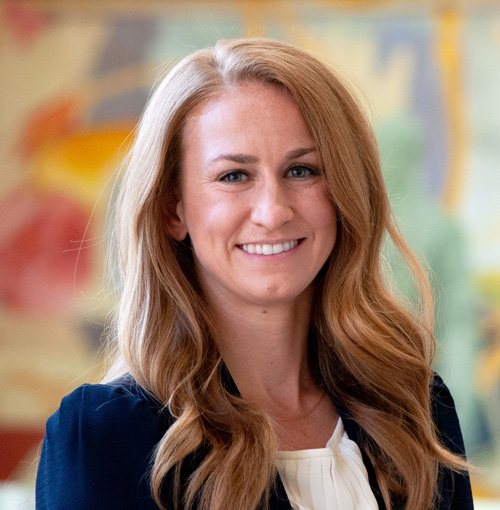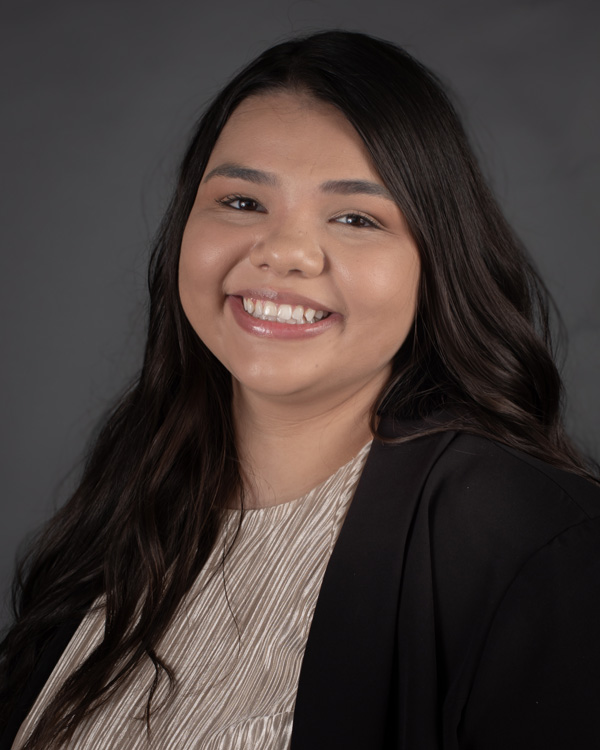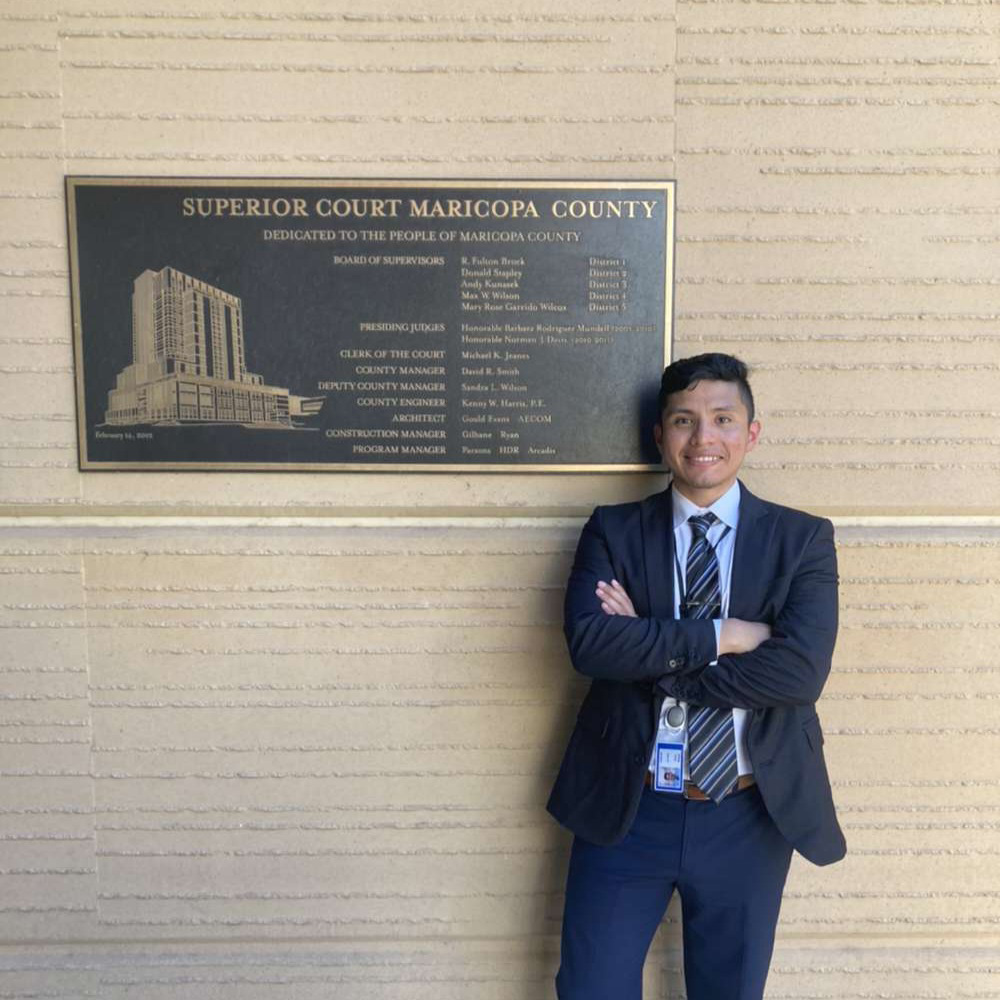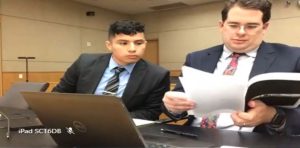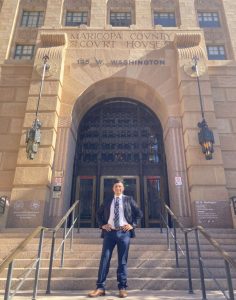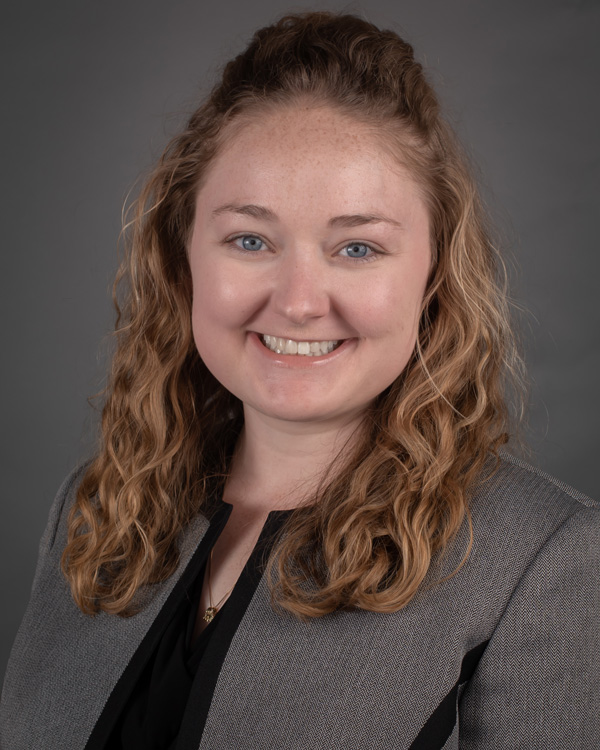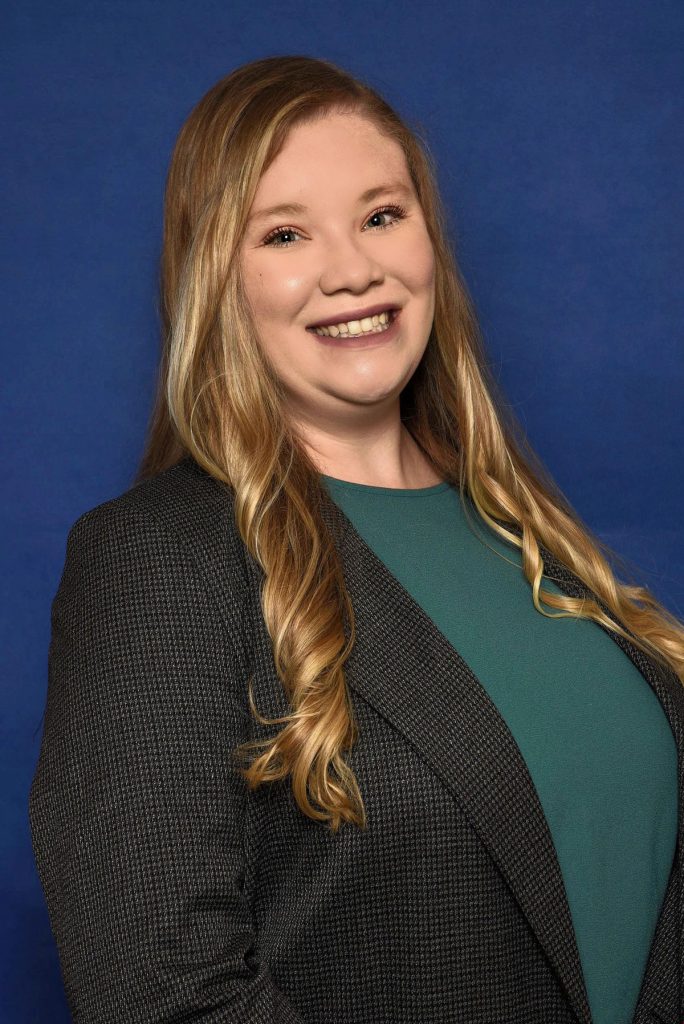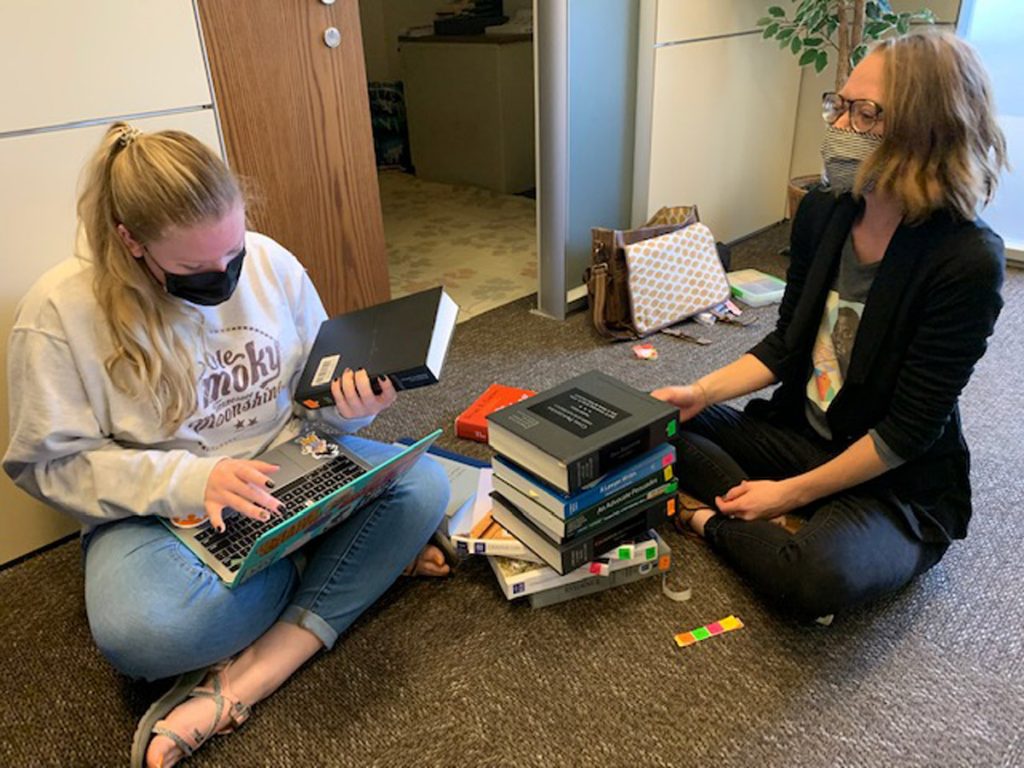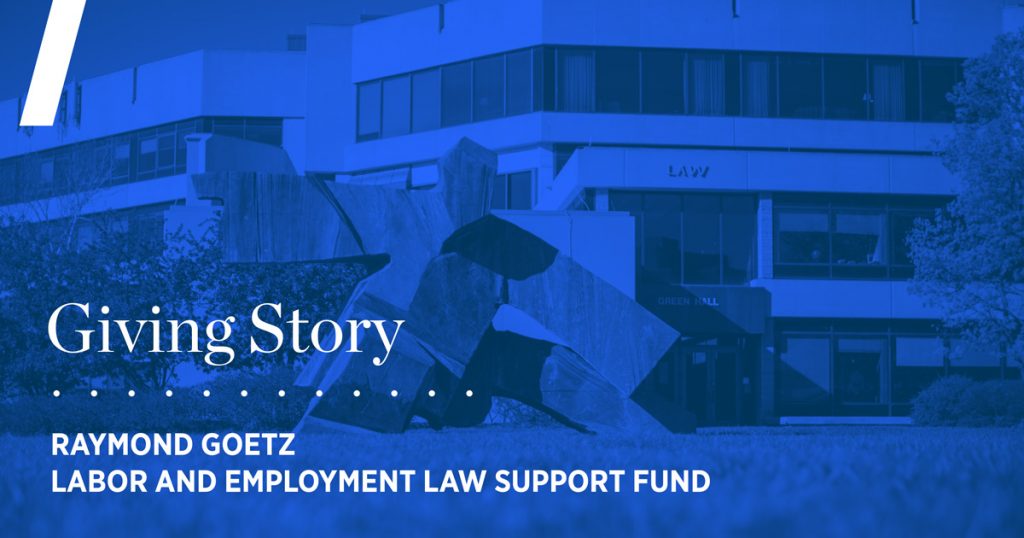Externship with Kansas Athletics aligns coursework with professional interests
During two semesters working as a legal intern for Kansas Athletics, third-year law student Kristen Andrews learned to think outside the box when answering legal questions.
Andrews completed an externship with KU Athletics through the Field Placement Program at the University of Kansas School of Law. Students in the program work under the supervision of a practicing attorney.
“The Field Placement Program provides students with an excellent opportunity to align their coursework with their professional interests,” Andrews said.
Andrews shared her experience with the Field Placement Program for a Q&A.
What type of work did you do through the Field Placement Program?
I spent my time in the Field Placement Program working as a legal intern at Kansas Athletics. At Kansas Athletics, I completed legal research on a wide range of topics, wrote memoranda and reviewed contracts.
Are there skills you developed or improved through the Field Placement Program?
During my time interning with Kansas Athletics, I improved my legal research and writing skills. But perhaps more importantly, I improved my ability to navigate unfamiliar and convoluted areas of law and to think outside the box when answering legal questions.
How do you think this experience will impact the rest of your time in law school or the start of your career?
My field placement with Kansas Athletics will impact both my remaining time in law school and the start of my career in numerous ways. For example, it has helped me identify the skills I will need to be an effective practitioner and the classes that will aid my development in those areas. Furthermore, it has helped me explore my areas of interest within the broader sports law field, focus my short and long-term goals, and form meaningful relationships with people who will soon be my professional peers.
What has been your favorite part of working with the Field Placement Program?
The highlight of my field placement with Kansas Athletics was having the opportunity to learn about legal practice from my supervisor, Megan Walawender. She showed me how to approach complex legal questions, work effectively with colleagues, and adapt to shifting legal landscapes. Her example has been an indispensable part of my legal development.
What would you say to law students considering enrolling in the Field Placement Program?
I would say: Go for it! The Field Placement Program provides students with an excellent opportunity to align their coursework with their professional interests. If they are looking to develop practical skills, explore potential career paths, or develop professional relationships, then this is the class for them!
— By Margaret Hair
This post is the third in a series highlighting hands-on learning opportunities at KU Law. Stay tuned for more student experiences in clinics, field placements and experiential learning programs.
Read previous Q&A features with:
- Peyton Weatherbie, Elder Law Field Placement Program
- Lauren Stahl, Transactional Law Competition
